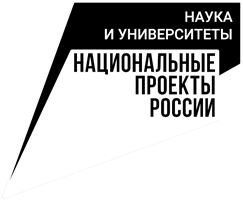43rd meeting of the seminar
«Supercomputer simulation of the climate system»
The seminar is devoted to various aspects of the application of supercomputer modeling methods for solving weather and climate forecasting problems.
Seminar Leader:
- Sadovnichy V.A., academician, rector of Lomonosov Moscow State University
Co-leaders of the seminar:
- Wilfand R.M., Doctor of Technical Sciences, Scientific Director of the Hydrometeorological Center of Russia
- Dobrolyubov S.A., Corr. RAS, Dean of the Faculty of Geography, Lomonosov Moscow State University
- Lykosov V.N., Corr. RAS, chief scientist Institute of Computational Mathematics, Russian Academy of Sciences, Head. Laboratory of Supercomputer Modeling of Natural and Climatic Processes of RCC MSU
- Stepanenko V.M., Doctor of Physics and Mathematics, Deputy Director of RCC MSU
Scientific Secretary of the seminar:
- Mortikov E.V., Ph.D., Researcher of RCC MSU
Seminar topics cover the following main areas (but not limited to them):
- Methods and technologies for using supercomputer computing in interdisciplinary problems of environmental sciences.
- Mathematical modeling of processes in the climate system.
- Application of supercomputer technologies for solving problems of weather forecasting.
- Application of supercomputer technologies to solve problems of assessing climate change and their consequences for the environment.
- Application of supercomputer technologies for the complex solution of problems of environmental protection, including natural hazards and man-made disasters.
PROGRAM
17:30 (GMT+3)
| E.M. Volodin | INM RAS, Moscow |
| V.V. Vorobieva | INM RAS, Moscow Moscow Institute of Physics and Technology (State University), Dolgoprudny, Moscow Region |
| A.S. Gritsun | INM RAS, Moscow |
Forecasting The State Of The Climate System On Seasonal And Ten-Years Scales
The report discusses issues related to forecasting the state of chaotic systems, which include the Earth's climate system. The concept of "climate" is formulated. The concept of potential predictability is introduced, the sources of predictability predictability on the right side and on the initial conditions are discussed. The INM-CM5 model of the Earth system of the INM RAS is briefly described - a set of models for the dynamics of the atmosphere, the dynamics of the ocean, sea ice, soil, ocean biochemistry, etc., its numerical implementation, characteristics of the computational efficiency.
Reproduction of seasonal weather anomalies in 1980-2020 using the INM-CM5 model is considered. It is shown that the model is able to reproduce events associated with extreme values of the NAO index, as well as other large anomalies of the summer and winter seasons. The quality of reproduction of anomalies is compared with similar indicators for other systems of seasonal forecasting.
The results obtained in predicting the state of the climate system at ten-year time intervals using ensembles of predictive calculations taking into account the actually observed initial state are discussed.
The potential predictability of the heat content of the upper 300-meter water layer in the Arctic is considered. It is shown that heat content anomalies can be predicted for up to 5 years. The mechanism of decadal and multi-decadal climate fluctuations in the Arctic is considered.
The meeting of the seminar will be held in person and in the form of a webinar on the Zoom platform.
Link to the conference: https://us02web.zoom.us/j/84176754081?pwd=dnFrQXdmK3R0L3FwYzJOKytTMnJ6Zz09
Meeting ID: 841 7675 4081
Passcode: 027235
To simplify our work during the seminar, please do the following: check in advance that Zoom works for you (in the Zoom application settings you can check the quality of the speakers and microphone) and enter your last name, first name in your profile settings and middle name in full (this can be done on your profile page (https://us02web.zoom.us/profile) - in this case, conference colleagues will see how to contact you.

